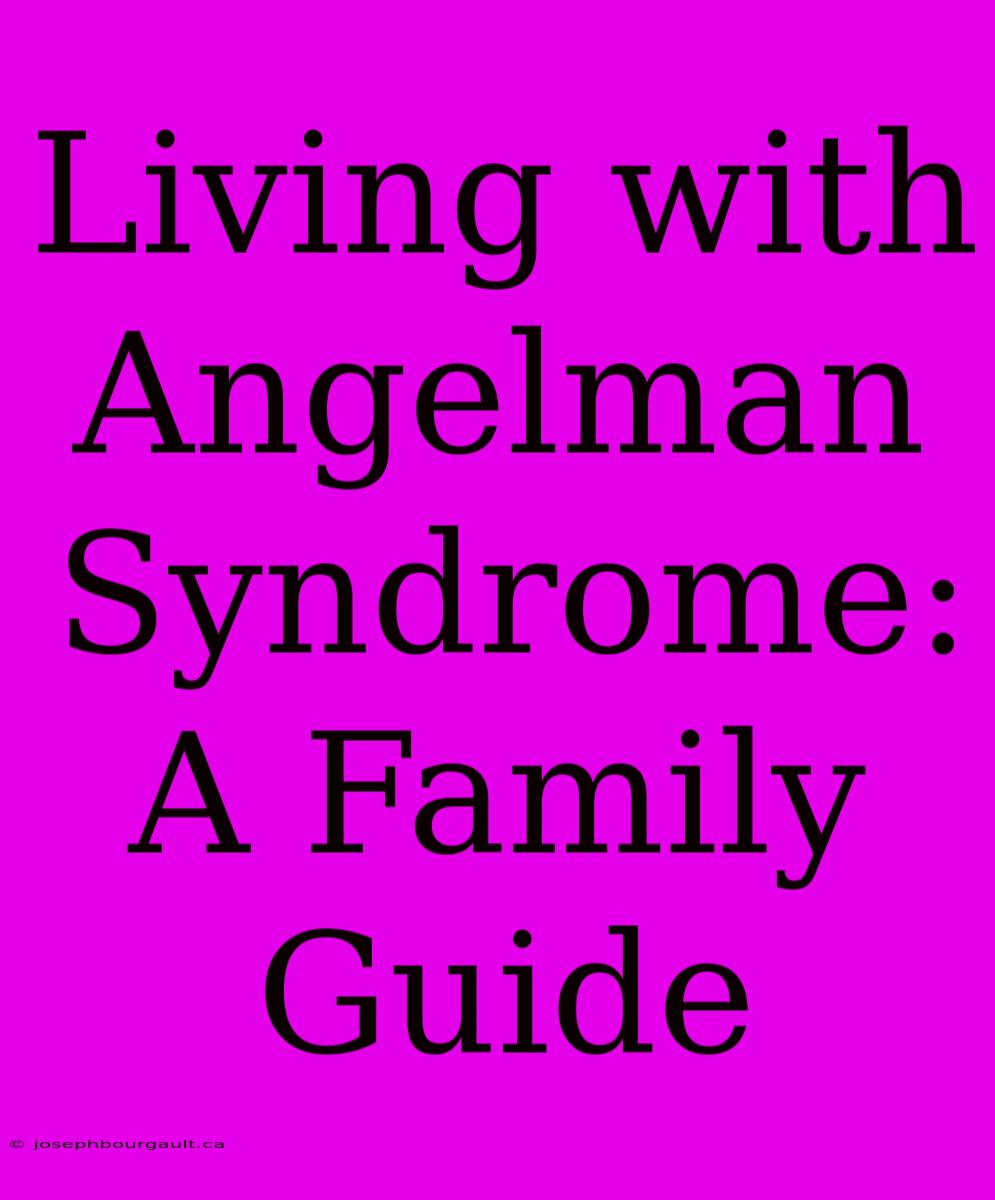Living with Angelman Syndrome: A Family Guide
Angelman Syndrome (AS) is a rare neurogenetic disorder that affects a child's development and behavior. This complex condition presents unique challenges for families, requiring constant adaptation, learning, and support. This comprehensive guide provides insights into understanding AS, managing everyday life, and navigating the journey of raising a child with this syndrome.
Understanding Angelman Syndrome
What is Angelman Syndrome?
AS is caused by a genetic defect on chromosome 15, affecting the development of the nervous system. This results in various symptoms like:
- Developmental Delays: Children with AS often experience delays in speech, motor skills, and cognitive development.
- Characteristic Facial Features: These may include a wide smile with a wide-set mouth, a prominent chin, and almond-shaped eyes.
- Movement and Balance Issues: They often have problems with coordination, balance, and gait.
- Happy Disposition: Children with AS are known for their cheerful and outgoing personalities, frequently displaying laughter and joy.
- Sleep Disturbances: They may have difficulty sleeping through the night and experience frequent awakenings.
- Communication Challenges: Speech development is often delayed, and communication can be challenging. Non-verbal communication methods like sign language or picture exchange systems are often beneficial.
Diagnosis:
The diagnosis of AS often involves a combination of clinical observations, genetic testing, and other evaluations.
Treatment and Management:
There is no cure for AS, but various therapies and interventions can help manage the symptoms and improve quality of life. These include:
- Physical Therapy: To strengthen muscles, improve coordination, and enhance mobility.
- Occupational Therapy: To develop fine motor skills, self-care abilities, and daily living skills.
- Speech Therapy: To address communication challenges, improve language skills, and enhance vocalization.
- Behavioral Therapy: To address behavioral issues and promote adaptive behaviors.
- Medication: To manage seizures, sleep disturbances, and other symptoms.
Living with Angelman Syndrome: The Family Journey
Embracing the Challenges:
Raising a child with AS requires patience, understanding, and a willingness to adapt.
- Emotional Rollercoaster: Families will face a range of emotions, including joy, frustration, anxiety, and grief. It's important to acknowledge and process these feelings.
- Learning Curve: Be prepared to constantly learn about AS and its impact on your child's development.
- Seeking Support: Connect with other families facing similar challenges through support groups, online communities, and organizations dedicated to AS.
Building a Supportive Environment:
- Creating a Structured Routine: Predictable schedules and visual aids can help children with AS adapt to daily life.
- Promoting Independence: Encourage self-sufficiency by providing opportunities for your child to engage in age-appropriate activities.
- Celebrating Achievements: Every milestone, no matter how small, should be acknowledged and celebrated.
Focusing on Quality of Life:
- Adaptive Strategies: Find creative solutions to overcome obstacles and promote your child's participation in activities.
- Enhancing Communication: Use a variety of communication methods to ensure your child's needs are met.
- Creating Joyful Experiences: Focus on creating positive experiences that foster happiness and a sense of well-being.
Resources:
- The Angelman Syndrome Foundation:
- National Angelman Syndrome Foundation:
- Angelman Syndrome UK:
Living with Angelman Syndrome is a journey filled with challenges and triumphs. By understanding the condition, seeking support, and embracing a positive mindset, families can create a fulfilling and loving environment for their children with AS.

